Life
Sign up for our newsletter
We summarize the week's scientific breakthroughs every Thursday.
-
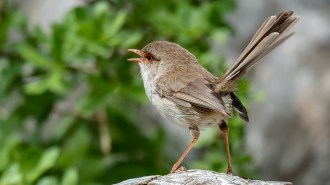 Animals
AnimalsSome birds learn to recognize calls while still in their eggs
For over a decade, behavioral ecologist Diane Colombelli-Négrel and colleagues have been studying how birds perceive sounds before hatching.
-
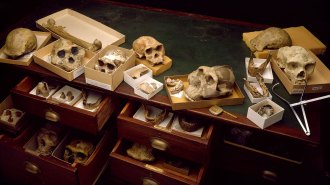 Humans
HumansFossils and ancient DNA paint a vibrant picture of human origins
Paleoanthropologists have sketched a rough timeline of how human evolution played out, centering the early action in Africa.
By Erin Wayman -
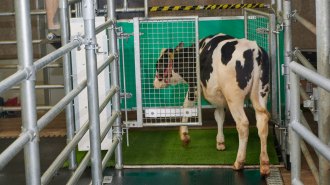 Agriculture
AgriculturePotty-trained cattle could help reduce pollution
About a dozen calves have been trained to pee in a stall. Toilet training cows on a large scale could cut down on pollution, researchers say.
-
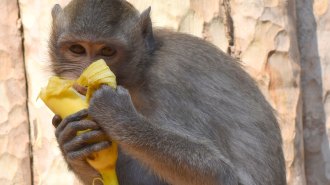 Animals
AnimalsMary Roach’s new book ‘Fuzz’ explores the ‘criminal’ lives of animals
In “Fuzz: When Nature Breaks the Law,” author Mary Roach profiles mugging monkeys, thieving bears and other animal outlaws.
-
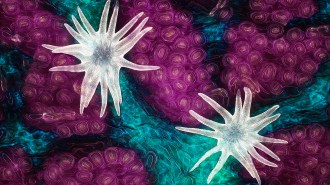 Life
LifeA beautiful oak leaf portrait won the 2021 Nikon Small World photography contest
The annual competition showcases otherworldly photos that capture microscopic features of nature and science.
-
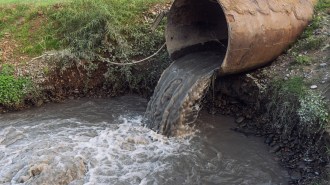 Environment
Environment50 years ago, chemical pollutants were linked to odd animal behavior
Fifty years after studies hinted that pollution interferes with how aquatic creatures communicate, scientists are still unraveling its myriad effects.
By Aina Abell -
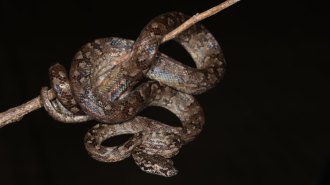 Animals
AnimalsA newfound boa sports big eyes and a square nose
Among the smallest boas in the world, the Hispaniolan vineboa inhabits a small patch of dry forest along the Dominican Republic’s border with Haiti.
-
 Life
LifeInfants may laugh like some apes in their first months of life
Laughter seems to change over life’s early months, perhaps influenced by the unconscious feedback parents give when they play with their little ones.
-
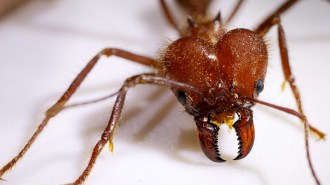 Animals
AnimalsHow metal-infused jaws give some ants an exceptionally sharp bite
Some small animals make cuts, tears and punctures that they couldn’t otherwise do using body parts reinforced with metals such as zinc and manganese.
By Jake Buehler -
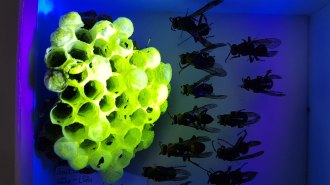 Animals
AnimalsSome wasps’ nests glow green under ultraviolet light
Some Asian paper wasps’ nests fluoresce so brilliantly that the glow is visible from up to 20 meters away.
By Nikk Ogasa -
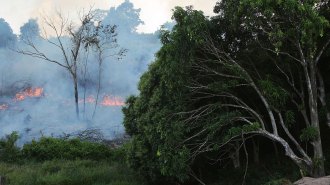 Life
LifeFires may have affected up to 85 percent of threatened Amazon species
Since 2001, fires in the Amazon have impacted up to about 190,000 square kilometers — roughly the size of Washington state.
By Jake Buehler -
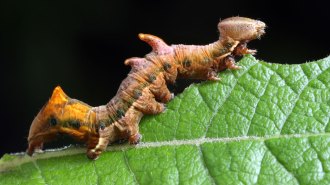 Animals
AnimalsStreetlights, especially super bright LEDs, may harm insect populations
Greenery under streetlights housed half as many caterpillars as darker areas did, researchers found.